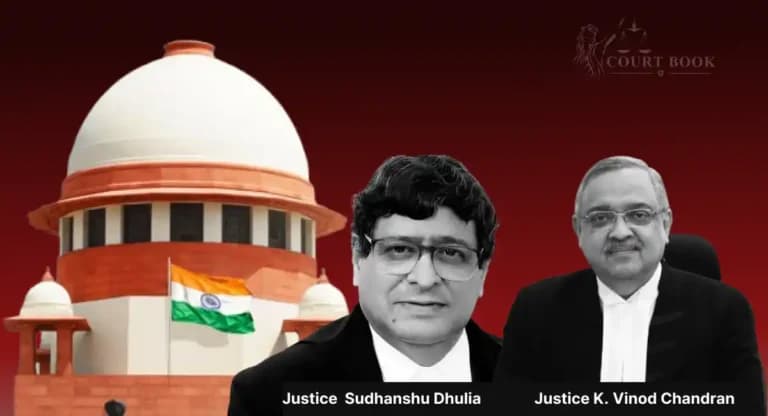In a significant ruling on the Andhra Pradesh Land Grabbing (Prohibition) Act (the Act), the Supreme Court has clarified that violence is not a necessary condition for land grabbing. Even peaceful possession without a legal right is considered land grabbing under this Act.
A bench of Justices Sudhanshu Dhulia and K. Vinod Chandran upheld the High Court’s decision, confirming that the appellant was a "land grabber" due to his unauthorized, though non-violent, occupation of the disputed land.
Read also: Supreme Court Seeks Centre's Response on Suggestions to Reform Sex Education and Real-Time
The judgment, written by Justice K. Vinod Chandran, referred to the precedent set in Konda Lakshmana Bapuji v. Govt. of A.P., (2002) 3 SCC 258, where the Court stated that peaceful occupation of land without a legal right still amounts to land grabbing under the Act.
“As has been held in the cited decision, the term ‘land grabbing’ is employed in the statute, conferring on it both a narrow and broad connotation and it cannot be said that there should necessarily be criminality insofar as the encroachment or trespass carried out. The mens rea or intention required is only of illegally taking possession of land, through unlawful or arbitrary means, by oneself or through others, for creation of third-party rights, carrying out constructions or use and occupation unauthorizedly,” the Court explained.
Read also: Supreme Court: Referring to Trial Court as "Lower Court" is Against the Constitution
Background
The dispute involved 252 square yards of land in Survey No. 9, which the legal heirs of the original owner claimed based on a registered sale deed from 1965. The appellant, V.S.R. Mohan Rao, argued that he had purchased an adjacent plot in Survey No. 10 in 1997 and constructed a two-story building on it.
However, a government survey later showed that the appellant was actually in possession of land in Survey No. 9, for which he had no legal ownership. This raised the question of whether he could be declared a "land grabber" under the Act for occupying 252 square yards out of 555 square yards in Survey No. 9.
The Supreme Court held that even though the occupation was peaceful and non-violent, it was unauthorized and without legal right. Therefore, it fell under the definition of land grabbing in the Act.
“Despite the absence of force or aggression, the Appellant’s continued unauthorized occupation amounted to land grabbing under the provisions of the Act,” the Court stated.
Case Title: V. S. R. MOHAN RAO VERSUS K. S. R. MURTHY & ORS.
Appearance:
For Petitioner(s) : Ms. Madhvi Diwan, Sr. Adv. Mr. Arun Kumar Nagar, Adv. Mr. Sudhir Naagar, AOR Ms. Rajshree Singh, Adv.
For Respondent(s) : Mr. P. V. Yogeswaran, Adv. Mr. Y. Lokesh, Adv. Mr. Bibek Tripathi, Adv. Mr. Arun Singh, Adv. Mr. Guneswaran Pv, Adv. Mr. Ashish Kumar Upadhyay, AOR















